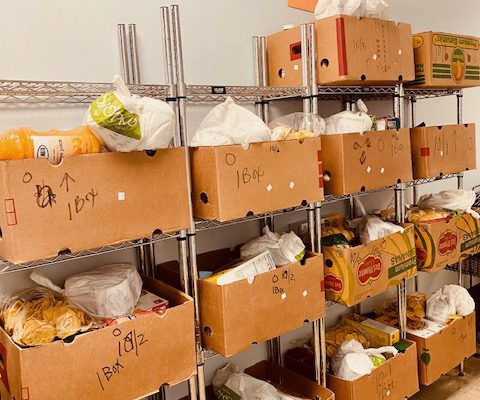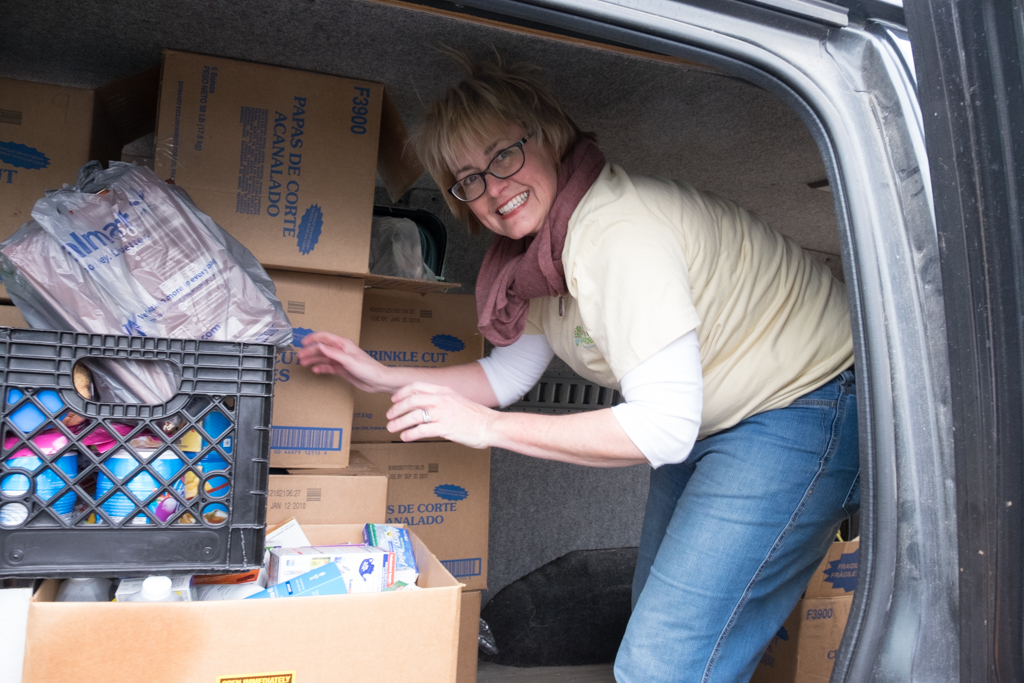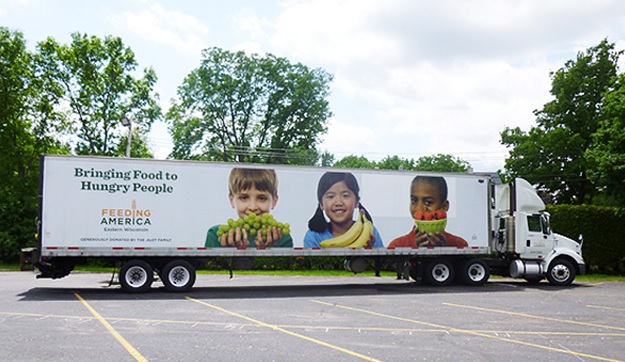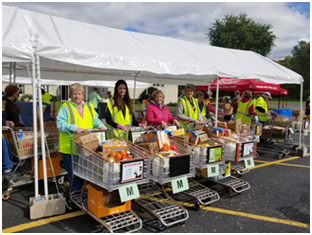Layers of challenge: Local food pantries work to provide a continuum of services

By Kris Leonhardt
CENTRAL WISCONSIN – The current environment has introduced us to a contactless world. While local food pantries work to meet growing community needs, they struggle with challenges on many levels to provide a continuum of services.
Wisconsin Rapids’ South Wood Emerging Pantry Shelf (SWEPS) is seeing these issues compounded by the recent idling of the Verso paper mill in the city.
“There are several different layers of the challenges that we are facing because of COVID, and then you take that and add to the fact with the mill idling and those layoffs, that just kind of compounds every one of the issues,” said Dale Davis, SWEPS operations manager. “It is a lot of the same issues that other pantries are struggling through.
“We had periods that we were unable to purchase anything. Stores were busy just trying to keep their own shelves full, so they weren’t allowing outside orders.
“What we had done in March, when (COVID) was going through China and started getting on cruise ships, I was afraid it was going to come to the United States, so I started buying pallets of stuff ahead of time. So, when it hit here, and we couldn’t purchase anymore, I had a very solid inventory that we could work off of. We survived it; we did just fine.
“So, one of the challenges was just being able to purchase things, because there wasn’t the availability to purchase.”
Cancellation of food drives
Stevens Point Salvation Army Director Ed Wilson adds that local food pantries need assistance more than ever, with some pantries currently empty of stock.
“I know for all of our food pantries, because all of us are sought out by the homeless and those that are in need, with the loss of two major food drives – which is the Boy Scouts and the postal drive – that’s hurt all of our pantries. I know one pantry; they just have nothing on their shelves,” Wilson explained.
Davis said that the loss of the major food drives affected the SWEPS pantry “in a big way.”
“Normally, we get a tremendous amount of food from those drives, and those drives usually carry us all of the way through the summer and they basically didn’t exist this year,” he explained.
Increasing need
“As we moved through the summer and people got through the extra incentives that were given out – the monies, national food stamps, and stuff – when all of that starting coming to an end, we started having a lot more families come back,” Davis recalled.
“That was right about the same time as the Verso announcement, so we had that happening at the same time. That started influencing the number of people coming in. Again, we had more families showing up as a result, as compared to singles or households of two.
“One discussion that we have had at the board level is that we know that we have not seen the full impact of the Verso idling yet. We have had some families come in now, probably three dozen so far, but we know that there is going to be more. Some with what they had in their savings and what they are currently getting in unemployment, they are OK; but, they are getting to the end of their savings and that is when they need to start coming in, to help them get through this time.
“So, we think that we are going to have an increasing number of them coming in from that.”
Davis added that with many schools split between in-person and virtual classes youth are home more and require more in-home meals.
“Instead of the kids being at school and getting involved in the breakfast and lunch program there, now the households are actually having more meals that they are needing to feed the children during the school year,” he stated.
No contact
Most local food pantries partner with The Emergency Food Assistance Program (TEFAP) – a federal program that aids low-income households facing food insecurity. The program provides service area jurisdictions and allots food accordingly.
“With TEFAP, they have decided that the pantries need to be a no-contact pantry, meaning we can’t have clients inside the food pantry to pick out their commodities, like they normally would,” explained Marshfield St. Vincent de Paul Outreach Director Trisha Hebert. “So, that has been a little harder, but for good reason I firmly believe, because normally our waiting room is just full with clients waiting to go through the pantry.”
So, most pantries have devised new systems for food distribution, whether it is contactless pick up, drive through, or an appointment method.
“What we do is we have the shelves color-coded and numbered,” Hebert explained.
The shelves are organized according to family size, and the hallways are allocated for pre-packing and organizing.
“What they are doing now is they are presenting at our back door with their ID, and we have three tables out our back door… and it keeps a good six-foot distance for everybody. Then, we check them in. We just look at their ID, write them down and the number of their household size, get their box that is already pre-packaged, go through and get the frozen and refrigerated stuff, and then out they go,” she added.
While the system saves time for distribution, the pre-packaging more than makes up for the time saved in the manpower it uses.
Manpower issues
With the pantries relying heavily on volunteers, some struggle with manpower issues.
“We’ve lost quite a few (volunteers),” said Hebert. “Some just haven’t come back because of COVID.
“Most of our volunteers are in that elderly range, so it does make it difficult pre-packaging food because we put the food in banana boxes that we prepackage and those boxes are probably 20 pounds, so that does get heavy for them to lift onto the shelves and then off of the shelves.”
For more information on the SWEPS food pantry in Wisconsin Rapids, visit www.swepspantry.org or call 715-422-2050. For more on St. Vincent de Paul in Marshfield, visit www.stvincentdepaulmarshfield.com/outreach-services or call 715-387-0395. For the Stevens Point Salvation Army food pantry, visit https://centralusa.salvationarmy.org/stevenspoint/programs-and-services or call 715-341-2437, and for the Neighbors’ Place in Wausau, visit http://neighborsplace.org/programs/food-bank-pantry or call 715-845-1966.







